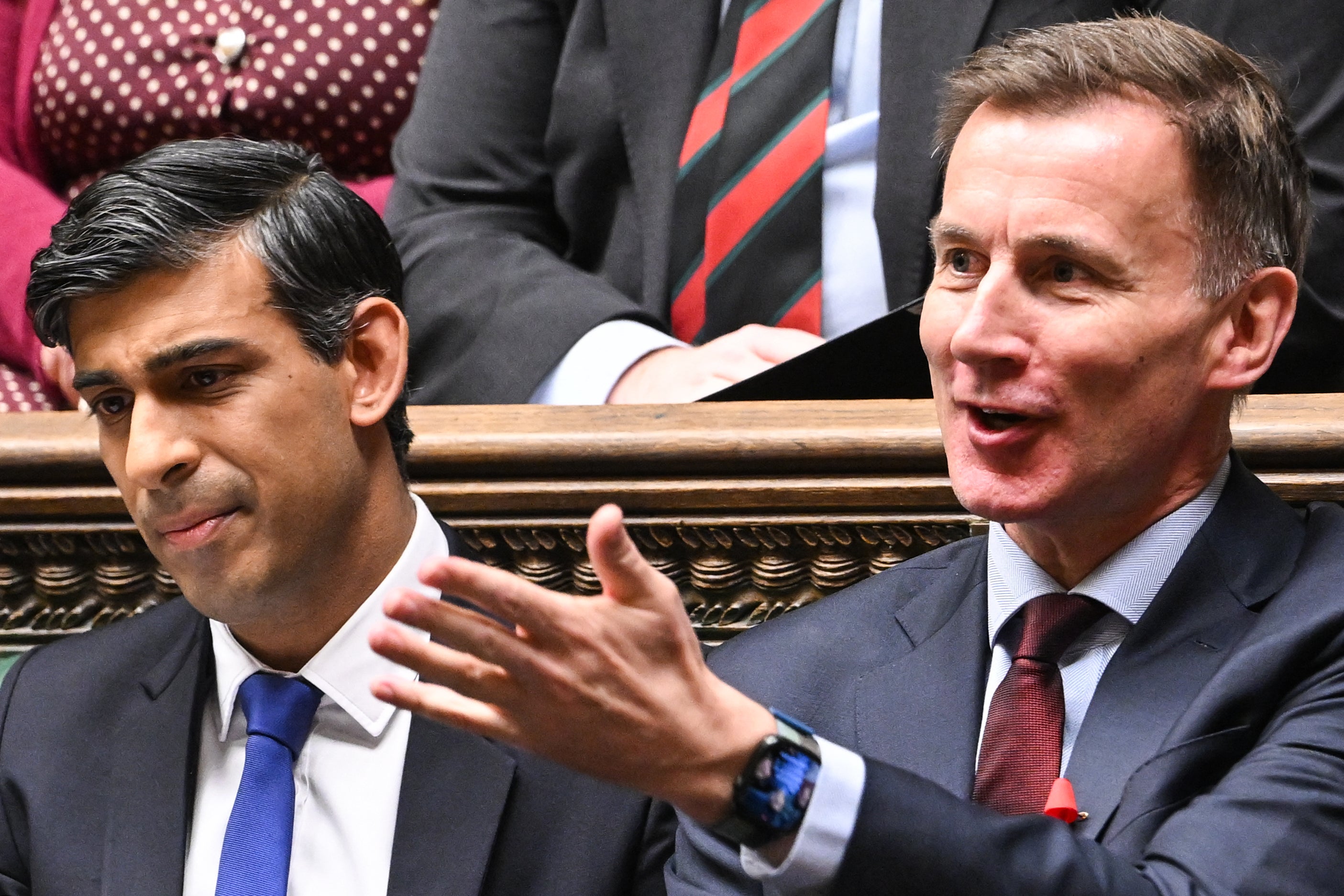If we are to have tax cuts, the PM must choose wisely
Editorial: Ahead of a general election, and buoyed by the recent drop in the inflation rate, the Conservative government is set for a ‘gear shift’ that will cut taxes. A reduction in income tax would be generally welcome – but slashing inheritance tax, which is widely seen as unfair yet affects just 4 per cent of estates, would be a wrong move made for the wrong reasons

As an important political year looms, Jeremy Hunt’s announcement that his Budget will take place on 6 March has prompted a flurry of speculation he will cut taxes in what is likely to be the last major fiscal event before the general election.
Rishi Sunak, who has promised a “gear shift” to tax reductions now that inflation has been halved, will not be too unhappy if his fractious backbenchers get the message that tax cuts are on the way. There is strong support across the Conservative Party for tax cuts, which are seen as a necessary, if not sufficient, ingredient of an improbable election victory.
The prime minister and his chancellor seem attracted by the idea of reducing inheritance tax. Although paid by only 4 per cent of estates, the tax is unpopular and seen as unfair among people who are unlikely to ever pay it. Many Tories view it as a “tax on aspiration”, arguing that people should be able to pass on income on which they have already been taxed to their children.
Some Tory MPs, including Jacob Rees-Mogg, are urging Mr Hunt to abolish the “death tax” altogether. A more realistic option is to halve the 40 per cent rate to 20 per cent. But The Independent believes this would be a wrong move, made for the wrong reasons.
The tax is due to raise almost £10bn a year by the 2027-28 financial year – revenue that is needed for the UK’s overstretched public services. Mr Hunt has already pencilled in unspecified spending cuts of £20bn over the next few years to make room for his decision to reduce national insurance contributions by two percentage points from 6 January. Even if the Tories retained power next year, they would struggle to make the budgets of Whitehall departments add up. So any tax cuts should take into account the impact on public services.
Inevitably, the divided Tories are arguing among themselves about precisely how Mr Hunt should reduce taxes. Wise heads are warning that reducing inheritance tax would be portrayed by Labour as a “tax cut for the rich” and are calling instead for income tax reductions, which would be more visible and benefit many more people. Mr Sunak should heed such warnings. Although his wealth does not make him a bad politician, many voters view him as “rich Rishi” and think he is out of touch, as the opinion polls and focus groups show. Cutting a tax paid by millionaires would reinforce this image at a dangerous time for the prime minister.
It appears that inheritance tax has risen to the top of Mr Hunt’s Budget in-tray because, while Labour would not walk into the elephant trap of promising to reverse any income tax cuts, Keir Starmer’s party would oppose a reduction in the “death tax”. So the move would create one of the “dividing lines” the Tories covet, and which Sir Keir often denies them.
Given the Tories’ dire election prospects, some tax cuts are inevitable. Mr Hunt should recognise that despite lower inflation, the cost of living crisis is far from over for millions of families. He should therefore use any spare resources to lower taxes for those at the bottom of the income scale – by unfreezing the £12,570 personal allowance to take people out of the tax net.
This would allow the Tories to remind voters the allowance has been raised from £6,475 since they came to power in 2010 – even if the move was the signature policy of the Liberal Democrats during the coalition, which the Tories ruthlessly rebranded later as all their own work.
Raising the allowance would be in tune with what voters want. When pollsters Ipsos asked people where any tax cuts should be made, the most popular choice was income tax on earnings between £12,570 and £50,000 (favoured by 44 per cent) with inheritance tax well down the list (only 14 per cent).
Whatever the chancellor decides, his tax cuts are unlikely to prove a magic solution to the Tories’ problems. Rather, they will be illusory: the tax burden will probably remain at its highest level for 70 years, thanks to the “stealth tax” of the six-year freeze in allowances and thresholds, which will raise £52bn by 2027-28 – the equivalent of a 6p in the pound rise in income tax rates.
Voters may prove harder to fool than Tory strategists think, and with good reason.
Join our commenting forum
Join thought-provoking conversations, follow other Independent readers and see their replies
Comments
Bookmark popover
Removed from bookmarks